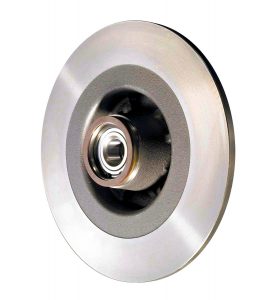Why is my brake pedal pulsing?

You may notice that when you use your car’s brake pedal, you feel a pulsing or vibrating sensation. The most likely cause of this is a warped brake rotor or damaged brake drums.
The brake rotor is a thin, metal disc that spins as your car drives. When the brakes are applied, the brake pads push against the rotor, causing the vehicle to slow down or stop. Over time, the brake rotor can bend or distort, causing vibrations throughout your braking system as well as reduced braking efficiency.
What causes the brake rotor damage?
There are several potential causes for a pulsing brake pedal in a car. Some of the most common causes include:
- Warped brake rotors: If the brake rotors are warped, they can cause the brake pedal to pulsate when applied. This can be caused by heat and friction, or by the rotors being worn down or damaged.
- Brake pads that are worn out: When the brake pads are worn down, they may not be able to provide enough friction to stop the car smoothly, which can result in a pulsing brake pedal.
- Air in the brake lines: If there is air in the brake lines, it can cause the brake pedal to feel spongy and pulsate when applied.
- A loose or damaged brake caliper: If the brake caliper is loose or damaged, it can cause the brake pedal to pulsate.
- An uneven distribution of brake pressure: If the brake pressure is not evenly distributed, it can cause the brake pedal to pulsate. This can be caused by a problem with the brake system or with the brake booster.
Other causes of a pulsing brake pedal:
There are several other potential causes for a pulsing brake pedal in a car. Some of the most common causes include:
- Brake pads that are worn out: When the brake pads are worn down, they may not be able to provide enough friction to stop the car smoothly, which can result in a pulsing brake pedal.
- Air in the brake lines: If there is air in the brake lines, it can cause the brake pedal to feel spongy and pulsate when applied.
- A loose or damaged brake caliper: If the brake caliper is loose or damaged, it can cause the brake pedal to pulsate.
- An uneven distribution of brake pressure: If the brake pressure is not evenly distributed, it can cause the brake pedal to pulsate. This can be caused by a problem with the brake system or with the brake booster.
How important is the brake rotor?
All braking components are important to your vehicle’s safety and should be replaced when necessary. A damaged brake rotor can make your vehicle uncomfortable to drive and increase your vehicle’s braking time, making it more susceptible to accidents.
Pulsing Brake Pedal / Brake Rotor Replacement in Hamilton
At Grimmer Motors, our vastly experienced and qualified mechanics are skilled in brake-related services. We can quickly check whether the brake disc rotors or brake drums are the source of the problem. If they are, we can perform a brake disc rotor / drum skim (brake disc / drum machining) or find a replacement for your vehicle. This will allow for improved brake disc rotor or drum effectiveness and safety.
For reliable brake rotor replacement and other brake-related services in Hamilton, contact Grimmer Motors today!

